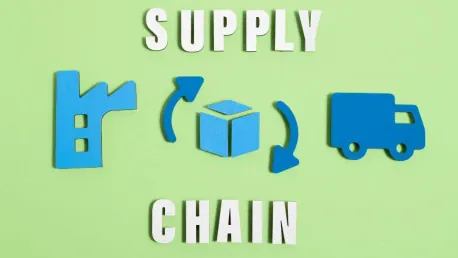In 2025, the importance of strong supplier partnerships cannot be overemphasized. A supply chain is only as strong as its weakest link, and ensuring robust supplier partnerships involves trust, effective communication, a comprehensive understanding of their operations, and a firm commitment to mutual success. As businesses continue to evolve and face new challenges, the need to forge, sustain, and enhance these relationships becomes even more critical. By implementing a series of strategic approaches, companies can navigate the complexities of supply chain management and achieve long-term success.
The Foundation of Legal Contracts
Importance of Clear Legal Agreements
Legal agreements form the backbone of professional relationships, demarcating clear boundaries and expectations. For supplier partnerships to thrive, it is essential to have detailed contracts that minimize gray areas and disputes, ensuring that both parties are on the same page. The significance of these clear agreements cannot be overstressed, as they provide a solid foundation for mutual understanding and trust. When expectations and responsibilities are clearly delineated, misunderstandings are minimized, promoting a harmonious and productive collaboration.
Contracts must be meticulously crafted, covering all aspects of the partnership, including delivery timelines, quality standards, payment terms, and confidentiality clauses. It is equally important to anticipate potential areas of contention and address them within the agreement. By doing so, businesses can preemptively manage conflicts, thereby fostering a stable and resilient partnership. Moreover, well-structured contracts enable both parties to navigate unforeseen challenges with greater ease, as they have a clear reference point to guide their actions and decisions. This clarity ultimately strengthens the partnership, laying the groundwork for long-term success.
Regular Updates and Dispute Resolution
For effective partnerships, the inclusion of dispute resolution and intellectual property clauses is prudent, even if issues are not anticipated. These provisions ensure that any disagreements can be resolved efficiently and fairly, preventing disruptions to the partnership. Regular updates of legal contracts are also essential, as they reflect the evolving business environment and renew trust. As markets and industries change, so too must the agreements that govern supplier relationships. By periodically reviewing and updating contracts, businesses can ensure that their partnerships remain relevant and mutually beneficial.
Updating contracts is an opportunity to address any new challenges, adjust terms to reflect current economic conditions, and incorporate feedback from both parties. This proactive approach demonstrates a commitment to continuous improvement and adaptability, qualities that are highly valued in a successful partnership. Additionally, maintaining current contracts helps to mitigate risks associated with outdated terms and conditions, which can lead to misunderstandings and disputes. By regularly refreshing agreements, companies can solidify their partnerships, ensuring that they are built to withstand the test of time and evolving business landscapes.
Supplier Profiling and Assessment
Regular Evaluations
Regular evaluations are essential for continuous improvement and maintaining high standards. They provide valuable feedback and help identify areas that require attention or adjustment. Regular assessments ensure that goals are being met and help organizations stay on track.
Regular evaluations of suppliers are crucial for maintaining an up-to-date understanding of their capabilities and potential risks. This assessment spans various factors like location changes, stockholding capacities, and the ability to manage significant risks. By conducting these evaluations routinely, businesses can identify any potential weaknesses or areas for improvement, ensuring that their supply chain remains resilient and efficient. Moreover, these evaluations provide valuable insights into the overall health and performance of supplier partnerships, enabling companies to make informed decisions about their future collaborations.
Assessments should be comprehensive, taking into account not only the immediate performance of suppliers but also their long-term viability. This includes evaluating financial stability, operational efficiency, and adherence to regulatory requirements. By maintaining a holistic view of supplier performance, businesses can proactively address any issues before they escalate, preserving the integrity of the supply chain. Additionally, regular evaluations foster a culture of continuous improvement, encouraging suppliers to strive for excellence and align their practices with industry best standards. This collaborative effort ultimately strengthens the partnership, driving mutual success.
Informed Decision-Making
These evaluations help businesses weigh the value of continuing partnerships and inform decisions regarding renewals and updates of agreements, ensuring that partnerships remain beneficial and aligned with business goals. Through continuous assessment, companies can identify which suppliers are performing well and which may require additional support or intervention. This information is invaluable for strategic planning, as it enables businesses to allocate resources effectively and prioritize relationships that offer the most significant potential for growth and innovation.
Informed decision-making also extends to the negotiation of terms and conditions. Armed with comprehensive data on supplier performance, businesses can approach negotiations with a clear understanding of their requirements and expectations. This transparency fosters a more collaborative and constructive dialogue, leading to agreements that are fair and mutually advantageous. Furthermore, by regularly reassessing and refining their supplier portfolio, companies can stay agile and responsive to market changes, ensuring that their supply chain remains robust and competitive. This dynamic approach to supplier management is essential for achieving sustainable success in an increasingly complex and fast-paced business environment.
Risk Mitigation Strategies
Potential Disruptions
The potential for disruptions due to market fluctuations, natural disasters, or geopolitical events necessitates defined protocols. Collaborating with suppliers to develop these protocols ensures that any unforeseen events can be managed smoothly, minimizing the impact on both parties. This proactive approach to risk mitigation is crucial for maintaining the stability and resilience of the supply chain. By having clear and well-communicated plans in place, businesses can respond swiftly and effectively to disruptions, thereby safeguarding their operations and maintaining positive relationships with their suppliers.
Risk mitigation strategies should encompass a wide range of scenarios, including supply shortages, transportation delays, and regulatory changes. By identifying potential risks and developing contingency plans, companies can reduce their vulnerability and enhance their ability to adapt to changing conditions. Collaboration with suppliers is essential in this process, as it promotes a shared understanding of risks and reinforces a commitment to mutual support. Through joint efforts, businesses and suppliers can devise solutions that are tailored to their specific needs and capabilities, ensuring that both parties are well-prepared to handle any challenges that may arise.
Maintaining Positive Relations
By having risk mitigation strategies in place, businesses can maintain positive relations with suppliers, ensuring that any disruptions are handled efficiently and do not strain the partnership. This collaborative approach to risk management fosters trust and confidence, as both parties know that they have a reliable partner to lean on in times of crisis. Furthermore, transparent communication about potential risks and mitigation plans helps to align expectations and prevent misunderstandings, promoting a more harmonious and productive relationship.
Maintaining positive relations through effective risk management also involves regular reviews and updates of mitigation strategies. As new risks emerge and business conditions evolve, companies and suppliers must continuously reassess and refine their plans to stay ahead of potential threats. This ongoing process of evaluation and adaptation strengthens the partnership, as it demonstrates a commitment to preparedness and resilience. By working together to navigate uncertainties, businesses and suppliers can build a foundation of mutual respect and collaboration, ensuring the long-term success of their relationship.
Quality Assurance
Quality assurance (QA) refers to the systematic activities implemented within a quality system to ensure that the quality requirements for a product or service are fulfilled. Through various practices like process checklists, project audits, and methodology standards, QA guarantees that the product meets the specified standards, providing confidence in its usability and reliability.
Ensuring Product and Service Quality
Ensuring supplier product or service quality adherence is crucial. The fault may not always lie with the supplier, making joint quality control efforts essential. By working together to uphold high standards, businesses and suppliers can mitigate risks and ensure consistent delivery of superior products and services. Joint quality assurance initiatives foster a sense of shared responsibility, encouraging both parties to invest in the continual improvement of their processes and outcomes. This collaborative effort not only enhances the quality of the final product but also strengthens the partnership by promoting mutual trust and accountability.
Quality assurance measures should be integrated into every stage of the supply chain, from initial production to final delivery. This includes regular inspections, audits, and performance assessments, as well as transparent reporting and documentation. By maintaining rigorous quality control protocols, businesses can identify and address any issues promptly, minimizing the risk of defects or delays. Additionally, clear communication about quality expectations and standards helps to align both parties, ensuring that everyone is working towards the same goals. This concerted effort to uphold quality ultimately benefits both the business and the supplier, driving customer satisfaction and loyalty.
Clear Quality Assurance Guidelines
Clear quality assurance guidelines within agreements increase transparency and understanding, further solidifying partnerships and ensuring that both parties are committed to maintaining high standards. These guidelines should outline specific criteria for product and service quality, as well as the processes for monitoring and verifying compliance. By establishing well-defined benchmarks, businesses can hold suppliers accountable and provide them with the necessary support to meet these expectations. This structured approach to quality assurance fosters a culture of continuous improvement, motivating suppliers to strive for excellence and innovation.
Incorporating quality assurance guidelines into contractual agreements also provides a framework for resolving any issues that may arise. When both parties have a clear understanding of the standards and procedures, it becomes easier to address discrepancies and implement corrective actions. This transparency reduces the likelihood of conflicts and promotes a more collaborative and constructive relationship. By prioritizing quality assurance, businesses can build strong, reliable partnerships that are capable of delivering exceptional products and services, ultimately contributing to their competitive advantage and long-term success.
Availability and Delivery Commitments
Seamless Supply Chain Operations
Availability and delivery commitments from suppliers, as outlined in existing agreements, are vital for seamless supply chain operations. Timely communication of potential delays or complications helps in preempting and addressing issues before they escalate. By establishing clear expectations and maintaining open lines of communication, businesses can ensure that their supply chain operates smoothly and efficiently. This proactive approach to managing availability and delivery commitments minimizes disruptions and enhances the overall reliability of the supply chain.
To achieve seamless supply chain operations, businesses and suppliers must work together to develop robust delivery schedules and contingency plans. This involves setting realistic timelines, identifying potential bottlenecks, and implementing measures to mitigate delays. Regular communication and collaboration are essential in this process, as they enable both parties to stay informed and react quickly to any changes or challenges. By fostering a culture of transparency and responsiveness, businesses can build trust with their suppliers and ensure that their supply chain remains agile and resilient.
Establishing Direct Lines of Contact
Establishing direct lines of contact with suppliers ensures that any issues can be quickly communicated and resolved, maintaining the smooth flow of operations and strengthening the partnership. Prompt and effective communication is key to addressing potential problems before they escalate, enabling both parties to work together to find solutions. By having dedicated points of contact, businesses can streamline their interactions with suppliers, reducing the likelihood of misunderstandings and delays. This direct communication fosters a more collaborative and efficient relationship, ultimately benefiting both parties.
In addition to regular check-ins and updates, businesses should also implement mechanisms for real-time communication, such as instant messaging platforms or dedicated hotlines. This ensures that any urgent issues can be addressed immediately, minimizing the impact on the supply chain. Furthermore, direct lines of contact provide an opportunity for ongoing feedback and dialogue, enabling both parties to continuously improve their processes and performance. By prioritizing open and direct communication, businesses can build stronger partnerships with their suppliers, ensuring that their supply chain remains robust and responsive to changing conditions.
Cost-Effectiveness
Transparent Pricing Structures
Clear and ongoing communication about pricing structures and discounts fosters trust. Timely payments, adherence to payment terms, and proactive incentives for early payments bolster positive reputations and partnerships. By maintaining transparency in financial transactions, businesses can build a foundation of mutual trust and respect with their suppliers. This open approach to pricing and payments helps to align expectations and prevent misunderstandings, ensuring that both parties feel valued and fairly compensated.
Transparent pricing structures should include detailed breakdowns of costs, along with clear guidelines for any potential adjustments or discounts. This level of clarity enables businesses to plan their budgets more effectively and fosters a sense of accountability on both sides. Additionally, offering incentives for early payments or bulk orders can strengthen the partnership by demonstrating a commitment to mutual benefit. By prioritizing cost-effectiveness and transparency, businesses can create a more stable and supportive environment for their suppliers, ultimately enhancing the overall efficiency and resilience of the supply chain.
Mutually Beneficial Partnerships
Cost-effectiveness ensures mutually beneficial partnerships where both parties feel valued and are motivated to continue working together towards common goals. By managing costs effectively, businesses can provide suppliers with the financial stability they need to invest in innovation and growth. This, in turn, enables suppliers to deliver higher-quality products and services, benefiting the entire supply chain. A focus on cost-effectiveness encourages a more collaborative and forward-thinking approach to partnership, driving long-term success for both parties.
To achieve this, businesses should work closely with their suppliers to identify opportunities for cost savings and efficiency improvements. This may involve joint efforts to streamline processes, optimize resource utilization, or implement new technologies. By sharing the benefits of these initiatives, both parties can enhance their competitiveness and achieve greater profitability. Furthermore, fostering a culture of collaboration and mutual support helps to build a stronger, more resilient supply chain, capable of adapting to changing market conditions and seizing new opportunities. By prioritizing cost-effectiveness and mutual benefit, businesses can create sustainable partnerships that drive continuous improvement and innovation.
Supplier Relationship Management
Supplier relationship management (SRM) is a comprehensive approach to managing an enterprise’s interactions with the organizations that supply the goods and services it uses. The goal of SRM is to streamline and make more effective the processes between an organization and its suppliers, much like what customer relationship management (CRM) does for customer interactions. Effective SRM involves creating closer, more collaborative relationships with key suppliers to uncover and realize new value and reduce risk. This can lead to reduced costs, increased efficiency, and improved quality, thereby providing a competitive advantage. Additionally, SRM relies on a mix of tools, processes, and principles to manage and source suppliers more effectively and is crucial in today’s global, interconnected market landscape.
Designated Manager for Supplier Relations
A designated manager for supplier relations streamlines processes and interactions, solving problems and managing routines effectively. Not every vendor will need a relationship manager, but selected suppliers, based on existing reliability and efficiency, will benefit from this role. By assigning a dedicated individual to oversee supplier relationships, businesses can ensure that communication is consistent and issues are addressed promptly. This focused approach to supplier management enhances the overall efficiency and effectiveness of the partnership, promoting a more productive and harmonious collaboration.
The role of the supplier relationship manager encompasses various responsibilities, including contract negotiation, performance monitoring, and conflict resolution. By centralizing these tasks under a single authority, businesses can streamline their interactions with suppliers and ensure that all aspects of the partnership are handled consistently and professionally. This dedicated oversight helps to build trust and accountability, as suppliers know that they have a reliable point of contact to address any concerns or inquiries. Furthermore, by regularly engaging with suppliers, the relationship manager can identify opportunities for improvement and innovation, driving continuous progress and mutual benefit.
Streamlined Processes and Interactions
Having a dedicated manager ensures that supplier relationships are managed efficiently, reducing the chance of misunderstandings and promoting continuous improvement. By centralizing communication and oversight, businesses can maintain a clear and consistent dialogue with their suppliers, fostering a more collaborative and productive partnership. This streamlined approach helps to minimize the risk of miscommunication and delays, ensuring that both parties are aligned and working towards common goals.
Streamlined processes and interactions also involve the implementation of standardized procedures and protocols for managing supplier relationships. This includes regular performance reviews, feedback sessions, and joint planning meetings. By establishing a structured framework for collaboration, businesses can ensure that all interactions are conducted in a professional and efficient manner. Additionally, this structured approach enables both parties to track progress and measure success, promoting a culture of accountability and continuous improvement. By prioritizing streamlined processes and interactions, businesses can build stronger, more resilient partnerships with their suppliers, driving sustained success and innovation.
Communication and Collaboration
Communication and collaboration are essential components of any successful project, ensuring that team members are aligned and working cohesively towards common goals. Effective communication involves clear and concise sharing of information, listening actively to others, and providing constructive feedback. Collaboration, on the other hand, requires mutual respect, a willingness to compromise, and the ability to leverage each team member’s strengths to the fullest. Together, they create a productive work environment where ideas can be freely exchanged, challenges can be collectively addressed, and innovative solutions can be developed.
Regular, Honest Communication
Regular, honest communication reduces misunderstandings and builds trust. Discussing challenges, sharing forecasts, and providing feedback promotes respect and value, helping to grow partnerships. By maintaining open lines of communication, businesses and suppliers can ensure that they are aligned and working towards common objectives. This transparency fosters a more collaborative and supportive relationship, as both parties feel valued and understood.
Effective communication involves more than just exchanging information; it requires active listening and meaningful dialogue. Businesses should make a concerted effort to understand their suppliers’ perspectives, challenges, and goals. This empathetic approach helps to build a foundation of mutual respect and trust, as suppliers feel heard and appreciated. Regular, honest conversations also provide an opportunity to address any concerns or issues before they escalate, promoting a more harmonious and productive partnership. By prioritizing open and transparent communication, businesses can foster a culture of collaboration and continuous improvement, driving long-term success for both parties.
Promoting Respect and Value
Effective communication and collaboration form the bedrock of strong supplier relationships, ensuring that both parties feel valued and are committed to mutual success. By promoting a culture of respect and inclusivity, businesses can build stronger, more resilient partnerships with their suppliers. This involves recognizing and appreciating the unique contributions each supplier brings to the table, as well as fostering an environment of mutual support and encouragement.
Collaboration should be an ongoing effort, with regular opportunities for joint planning, problem-solving, and innovation. This can include workshops, brainstorming sessions, and cross-functional teams that bring together representatives from both businesses and suppliers. By working together to identify and implement new ideas, both parties can drive continuous improvement and achieve greater success. Additionally, providing recognition and incentives for high-performing suppliers helps to reinforce their value and loyalty, further strengthening the partnership. By prioritizing respect and collaboration, businesses can create a more supportive and productive supply chain, capable of achieving sustained growth and innovation.
Going the Extra Mile
Involving Suppliers in Strategic Discussions
Involving suppliers in product development discussions and planning initiatives fosters greater trust. Recognizing and incentivizing high-performing suppliers with programs drives loyalty and commitment. By including suppliers in strategic conversations, businesses can leverage their expertise and insights to drive innovation and improve overall performance. This collaborative approach demonstrates a commitment to partnership and mutual success, as both parties work together to achieve common goals.
Engaging suppliers in strategic discussions also provides an opportunity to align expectations and priorities, ensuring that everyone is working towards the same objectives. This can involve joint goal-setting, regular progress reviews, and collaborative problem-solving sessions. By fostering a sense of shared responsibility and ownership, businesses can build stronger, more resilient relationships with their suppliers. Additionally, recognizing and rewarding high-performing suppliers helps to reinforce their value and loyalty, further strengthening the partnership. By going the extra mile to involve suppliers in strategic discussions and recognize their contributions, businesses can drive sustained success and innovation.
Recognizing and Incentivizing High-Performing Suppliers
Going the extra mile for valuable suppliers can further cement partnerships, ensuring that they remain strong and beneficial for both parties. Recognizing and incentivizing high-performing suppliers fosters a sense of loyalty and commitment, as they feel valued and appreciated for their efforts. This recognition can take various forms, including awards, bonuses, and public acknowledgment of their contributions. By acknowledging the hard work and dedication of suppliers, businesses can motivate them to continue striving for excellence and innovation.
In addition to recognition, offering incentives such as financial rewards, capacity-building programs, or exclusive contracts can further strengthen supplier relationships. These incentives provide tangible benefits that demonstrate a commitment to mutual success and encourage suppliers to invest in their capabilities and performance. By going above and beyond to support and reward high-performing suppliers, businesses can build a more supportive and resilient supply chain. This proactive approach to partnership management promotes a culture of continuous improvement, driving long-term growth and success for both parties.
Proactive, Structured, and Collaborative Approaches
Emphasis on Proactive Strategies
The overarching trend is the emphasis on proactive, structured, and collaborative approaches in supplier relationship management. Nurturing these relationships through clear contracts, regular assessments, risk management, quality assurance, effective communication, cost management, and dedicated relationship oversight ensures the longevity and success of supplier partnerships. By adopting a proactive approach, businesses can stay ahead of potential challenges and seize new opportunities, ensuring that their supply chain remains robust and competitive.
Proactive strategies involve regular planning and review sessions, continuous monitoring of supplier performance, and the development of contingency plans for potential disruptions. By anticipating and addressing issues before they arise, businesses can minimize risks and maintain a stable and efficient supply chain. Additionally, fostering a culture of continuous improvement and innovation encourages both parties to strive for excellence and push the boundaries of what is possible. This forward-thinking approach to supplier relationship management is essential for achieving sustainable success in an increasingly complex and dynamic business environment.
Ensuring Longevity and Success
In 2025, building strong supplier partnerships is crucial for business success. A supply chain is only as strong as its weakest link, so it’s essential to form reliable and effective relationships with suppliers. This means fostering trust, maintaining clear and consistent communication, thoroughly understanding their operations, and committing to shared goals. As businesses continue to grow and face new challenges, the importance of creating, sustaining, and improving these partnerships becomes even more vital.
In the ever-evolving landscape, companies need to adopt strategic approaches to manage their supply chains effectively. These strategies may include regular performance evaluations, collaborative problem-solving, and joint planning sessions to ensure all parties are aligned. Developing a deep understanding of a supplier’s capabilities and limitations can help businesses anticipate and mitigate potential disruptions.
Moreover, leveraging technological advancements such as AI and blockchain can enhance transparency and efficiency within the supply chain. By doing so, companies not only build resilience but also gain a competitive edge. These collaborative efforts ultimately drive mutual growth and long-term success in an increasingly interconnected global market. Therefore, prioritizing strong supplier partnerships is not just beneficial, but essential for thriving in the modern business environment.








